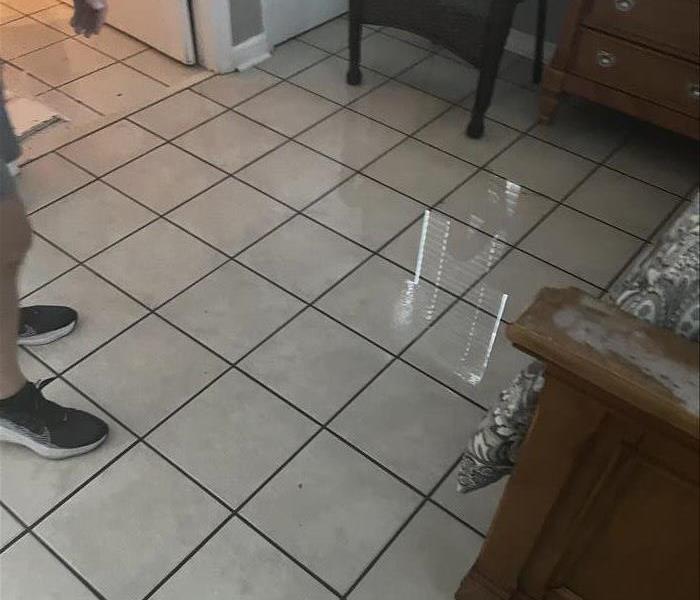Dealing with Common Types of Water Damage: A SERVPRO® Guide
12/27/2023 (Permalink)
Water damage is a homeowner's nightmare, and it can strike at any moment, causing chaos and frustration. Whether it's a sudden pipe burst or a leaky roof, knowing how to respond promptly can make a world of difference in minimizing damage and preventing further issues. In this blog post, we, the experts at SERVPRO®, will explore the most common types of water damage and provide guidance on the steps you should take when they occur.
1. Burst Pipes: Burst pipes are a frequent cause of water damage, especially during freezing temperatures or due to aging pipes. If you encounter a burst pipe:
- Shut off the main water supply immediately to stop water flow.
- Contact a professional plumber to repair or replace the damaged pipe.
- Remove standing water and initiate the drying process to prevent mold growth. SERVPRO® can assist in this process.
2. Roof Leaks: Roof leaks can result from damaged shingles, clogged gutters, or poor flashing. When you spot a roof leak:
- Place containers or buckets under the leak to collect water.
- Mitigate interior damage by removing wet materials and belongings.
- Inspect and repair your roof or seek assistance from a roofing professional.
3. Appliance Failures: Dishwashers, washing machines, and water heaters can malfunction, leading to leaks. When an appliance leaks:
- Turn off the appliance and its water supply.
- Immediately clean up the water.
- Repair or replace the faulty appliance, and seek our help for cleanup and restoration.
4. Basement Flooding: Heavy rains or inadequate drainage can result in basement flooding. If your basement floods:
- Ensure safety by turning off electricity to the affected area.
- Pump out or remove the water as quickly as possible.
- Address the cause of flooding, such as improving drainage or sealing cracks. SERVPRO® can assist with restoration.
5. Sewer Backup: Sewer backups can occur due to clogged sewer lines or heavy rainfall. If you experience a sewer backup:
- Avoid contact with contaminated water.
- Contact a professional plumber to clear the blockage.
- Thoroughly disinfect and clean the affected areas, and seek our assistance for cleanup and restoration.
6. Leaking Windows or Doors: Inadequately sealed windows and doors can permit water entry during rainstorms. When you detect leaks:
- Seal gaps and cracks around windows and doors.
- Replace damaged weatherstripping or caulking.
- Repair any water damage to walls or ceilings, and let SERVPRO® handle the restoration.
7. Flooding from Storms or Natural Disasters: Flooding from heavy rains, hurricanes, or river overflow can be overwhelming. In such cases:
- Prioritize safety, and follow evacuation orders if necessary.
- Contact emergency services.
- After floodwaters recede, contact SERVPRO® for damage assessment and restoration.
8. Leaking Plumbing Fixtures: Leaky faucets, toilets, or showerheads can waste water and lead to damage. When fixtures leak:
- Turn off the water supply to the affected fixture.
- Repair or replace the faulty component.
- Clean up any water damage to prevent mold growth. SERVPRO® can assist with this process.
In all instances of water damage, swift action is crucial to prevent further issues and potential health hazards. When faced with extensive or severe damage, don't hesitate to contact SERVPRO® for expert assistance.
Remember, early intervention and proper cleanup and restoration are essential to minimizing the impact of water damage and getting your property back to its pre-damage condition. Our team is here to help, ensuring that your peace of mind is restored along with your property.
For more useful information regarding flooding and water damage Click Here





 24/7 Emergency Service
24/7 Emergency Service
